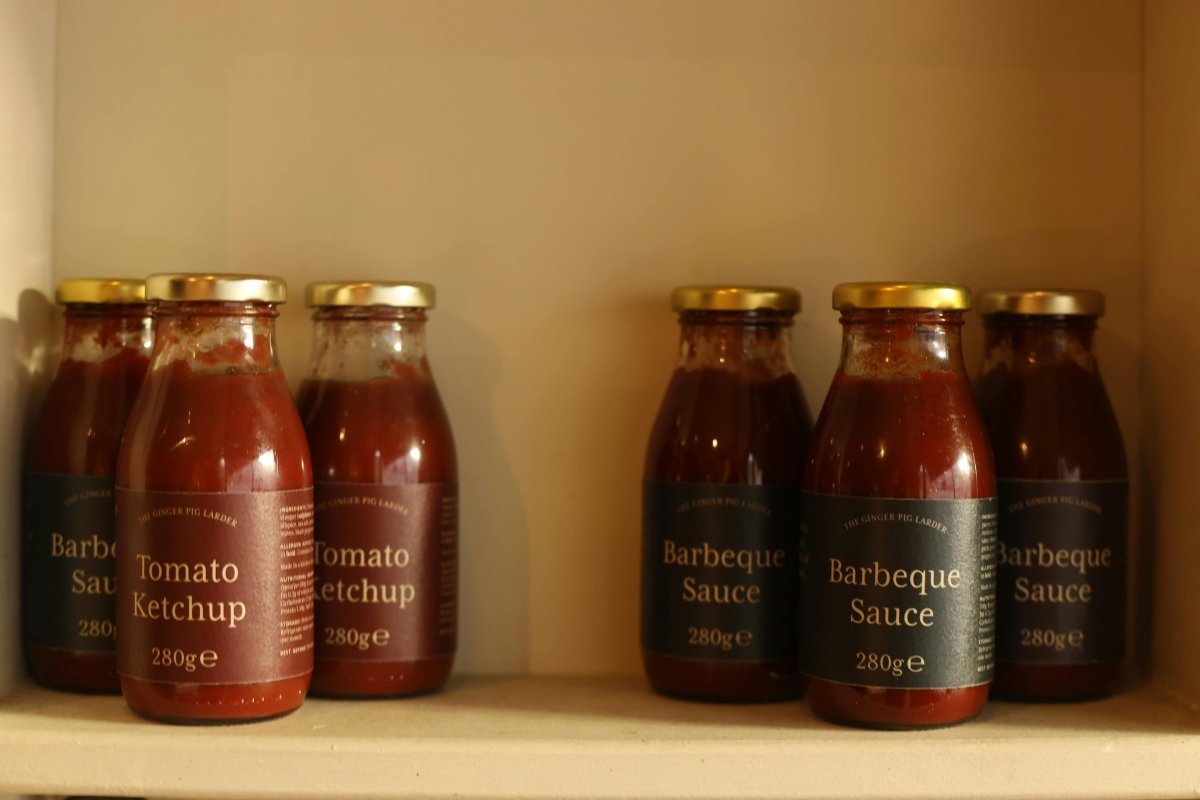
A recent recall involving three varieties of a pantry staple has sparked global concern—and for good reason. Food safety experts are paying close attention, not just because of the products themselves, but because of the serious health risk they highlight: botulism.
While the affected items may no longer be on shelves, the lessons they carry are far-reaching. This incident serves as a timely reminder that food safety isn’t just a regulatory issue—it’s something that starts in our own kitchens. Knowing how botulism develops, how to spot potential risks, and how to store food safely can help prevent rare but dangerous outcomes at home.
A Connecticut-based company, First and Last Bakery, has issued a recall for three of its pasta sauce products following concerns over improper canning procedures. The sauces, previously available at Big Y locations in Connecticut and Massachusetts, may pose a risk of botulism—a rare but potentially life-threatening illness linked to contaminated food.
The three varieties of pasta sauces affected by the recall are namely: First and Last Original Marinara Sauce, Tomato & Basil; First and Last Original Traditional Pasta Sauce, Meat Flavored; and First and Last Original Puttanesca Sauce, Mildly Hot & Spicy.
If you’ve bought any of these sauces, you can also double-check whether the jars have a "Use By" date of September 2026. If it does, then it’s likely impacted by the recall.
While no cases of illness have been reported so far, the incident reminds us of the importance of safe food handling and processing practices. Even a small lapse in technique can have serious public health implications.
What makes botulism so dangerous?
Botulism is a serious but uncommon illness that can lead to paralysis and affect vital functions such as vision, breathing, and swallowing.
It’s triggered by toxins produced by the Clostridium botulinum bacterium, which can thrive in foods that haven’t been properly preserved—especially those with low acidity. When these toxins are present, even a small amount of contaminated food can pose a significant health risk.
Understanding how botulism develops is key to preventing it, whether you're storing food at home or buying packaged goods.
Foodborne botulism can cause a range of alarming symptoms, including dizziness, nausea, dry mouth, vomiting, blurred or double vision, and difficulty with speech and swallowing. These signs often appear suddenly and can escalate quickly.
What makes botulism especially dangerous is its potential to become life-threatening without prompt medical intervention. In severe cases, the toxin can impair breathing and muscle control, requiring intensive care to prevent fatal outcomes.
The recall in the United States was triggered by a critical lapse in food processing oversight. The pasta sauces in question were produced without following a verified and approved preservation method—one designed to ensure safety and prevent contamination.
Without proper evaluation of the canning procedure, conditions may have allowed harmful bacteria like Clostridium botulinum to grow, posing a serious health risk to consumers.
Botulism warning signs to watch for:
- Double vision or blurred sight
- Difficulty speaking or swallowing
- Dry mouth
- Muscle weakness
- Nausea and vomiting
- Abdominal pain
- Difficulty breathing (in severe cases)
The home canning connection
Although the recent recall wasn’t linked to home canning errors, it serves as a powerful reminder of the importance of safe food preservation.
If you enjoy preserving your own fruits and vegetables, this is a good moment to revisit the basics of safe home canning. Using trusted, tested recipes and sticking to recommended processing times isn’t just a best practice—it’s essential for preventing harmful bacteria from taking hold.
One key factor is acidity: foods need to be naturally acidic or acidified with ingredients like lemon juice, vinegar, or citric acid to create an environment that’s hostile to dangerous microbes.
Taking these precautions helps ensure your homemade preserves are both delicious and safe to enjoy.
Spotting the danger signs in commercial foods
One troubling aspect of botulism risk is how easily it can go unnoticed.
Contaminated food doesn’t always look, smell, or feel spoiled—meaning, a product might seem perfectly fine while still harboring dangerous toxins.
The absence of swelling in container lids or any off-putting odor isn’t a reliable indicator of safety. That’s because Clostridium botulinum can thrive in low-acid, improperly preserved foods without leaving obvious signs. This makes strict adherence to safe processing and storage practices all the more critical.
However, there are some warning signs to watch for when purchasing or consuming canned goods:
- Bulging lids or cans
- Unusual odors when opened
- Cloudy liquids in jars that should be clear
- Food that spurts or foams when the container is opened
When to seek help
Most cases of botulism lead to long-term physical challenges, and about 15% can be fatal without timely treatment.
Symptoms typically begin with issues affecting the cranial nerves—such as drooping eyelids, double vision, difficulty speaking or swallowing, and unresponsive pupils. These early signs are often followed by a progressive, symmetrical muscle weakness that moves downward through the body, potentially impairing breathing and requiring intensive medical care.
If you or someone close to you develops symptoms like blurred or double vision, trouble speaking or swallowing, or sudden muscle weakness after consuming preserved foods, it’s critical to act fast.
These could be signs of botulism, a rare but serious condition that requires immediate medical care. Prompt treatment can make all the difference, so don’t hesitate to seek help.
Food safety begins at home
Understanding botulism risks becomes even more relevant.
Whether you're preserving your own garden vegetables, trying a new imported delicacy, or simply opening a can of sauce for dinner, a basic understanding of botulism helps protect you and your family.
For any further questions regarding the recall, you may contact First and Last Bakery, LLC at 860-956-5000.
Have you ever encountered suspicious-looking canned goods? What did you do next? What’s your go-to method for making sure your canned goods stay safe and shelf-stable?We'd love to hear about your experiences and any food safety tips you'd like to share with other readers.






